Episode 2
Going to the Front of the Class: Unpacking the Dynamics of Education & Institution
S01 - Episode 2
June 15, 2024
31 mins & 52 secs
Speakers
Chris McLaughlin
Soren Peterson
About
Welcome to the first of a 3-part discussion. In Episode 2, Chris and Soren celebrate their studio upgrades as they begin to dig into the public school experience from the perspectives of youth and adults alike. In today’s episode, Soren talks about the pressures students feel while Chris offers some of his experiences of when he was younger as well as his perspectives as a former school social worker and elected School Committee member.
*Please note that this episode contains sensitive behavioral health topics such as suicide and substance use. If you are experiencing a behavioral health crisis, please contact the 988 Suicide & Crisis Lifeline by calling 988 or visiting www.988lifeline.org.
**This podcast is for information and entertainment purposes only and should not be considered health advice. This podcast is not intended to replace professional medical advice.
Transcript
Chris: Soren, hi! Welcome back.
Soren: Hi! Yes, I’m back. I’m back. So exciting. I didn’t think that this was going to be happening.
Chris: You know what? It almost didn’t. We’ll talk more about that.
Soren: That’s true, that’s true. Welcome back. I’m so excited to join you back in the podcast studio for another episode of Inspired Insights.
Chris: Yes, I think that after our first episode, we’re ready to really get running with it.
Soren: I do too. I feel like we got some really good feedback from friends and family. Listeners and viewers are going to see more angles. We’ve got three recording devices happening right now. We’ve got a recording device actually happening right now, so I’m ready. I’m ready. How are you feeling?
Chris: I’m feeling really spectacular today. I just came off of eight hours of sleep, first time this week. Nice. And we got set up by our lead producer, Amanda Sidel.
Soren: Yeah, she hooked us up today. So we’re no longer relying on the logistics of me, which is subpar at best.
Chris: We’ll talk about that. We’ll definitely talk about that. How’s your week?
Soren: My week was, I’d say, interesting. We’re really gearing up for AP test season, and I got my SAT score back.
Chris: Oh, how was it?
Soren: It was fine. I got a 1350.
Chris: That’s better than fine.
Soren: No, it was like, it wasn’t bad. My calculator died halfway through the math section, so I had to use the provided calculator. It was awful. But although it’s a good score, I have felt really bad about it. I keep ruminating on it.
Chris: Really?
Soren: Yes, because just everybody in my classes is doing at my level or better. My cousin got a far better score than me.
Chris: For transparency, vulnerability, and validation, was this the second time you took this?
Soren: No, first time.
Chris: This is your only first time. My second SAT score was about 200 points lower than your first-time score.
Soren: Well, it was a different format back then, right? What was the atmosphere around testing in your high school situation?
Chris: Wow, that’s a great question. I feel like I was in the high school courses that were college prep. I had all those kids in my classes, and I remember them talking about 1200s and 1300s. Math has never been my strong point. In high school, my brother is a year and a half younger than me but two grades below me, and I was in his math class two full grades below. Every other course, I was in that crowd of kids except for math. I knew going into SATs that math was going to be a tough spot. I remember there being a lot of desks and chairs and a couple of proctors, faculty hanging around. Pressure was high, didn’t quite know what to expect, and I remember leaving with this mixture of relief and like, “There goes my college aspiration.”
Soren: Nowadays, not a lot of emphasis, at least from colleges, is placed on SATs or standardized testing. But I think there’s more of an atmosphere around it. Obviously, I don’t have the experience of being in high school back in the ’90s, early 2000s, 1890s.
Chris: Yeah, 1920s.
Soren: High schools weren’t really around back then. But I think the atmosphere that I have going on in school, which I really enjoy, is jovial and hyper-competitive with the other kids in the classes around academics.
Chris: Yeah, around academics.
Soren: I always struggle with that because I am so bad at work completion. So bad at work completion. Like you were talking about how you hate mathematics. I feel like so many really smart kids just can’t do math, and it doesn’t detract from their intelligence at all. Math is the only class that they properly created a strata for in middle school, so it did create some hierarchy of intellectual ability based on something that is not necessarily indicative of one’s true aptitude.
Chris: True aptitude, yeah. When I think about the career I have now and my pathway over the last 20-something years of being a social worker, there’s a stereotype about social workers going into social work because we can’t do math. But what I’ve realized across my career is the type of math that’s been front and center is not the math I was doing in high school or even in college. The math I needed for my career—I would have taken business classes to budget, set financial goals, track progress, and metrics. Business math was seen as a step below AP or college-level math. Reflecting on it now, I wish I had been given more opportunities to learn how to balance a checkbook, create a budget, and figure out percentages. I didn’t need calculus or advanced math; I needed practical financial skills.
Soren: I totally agree. School places a lot of emphasis on things that lack utility in the modern world. Honestly, for mathematics, you can exist in society having passed eighth-grade pre-algebra and do fantastic. This year, I’m taking AP Statistics, and it’s one of the more useful math classes because it allows for a better understanding of demographics and scientific articles. Once you know the statistical method scientists use to derive conclusions, it’s easier to understand experiments.
Chris: That’s an important point. Understanding the relationship between facts and figures would exceed the usefulness of my middle and high school math, even college math.
Soren: In my classes, I was talking to a friend in APBC the other day, and we were solving matrices. It has zero utility unless I’m a computer figuring out what color a pixel needs to be. We spend so much time on classes that aren’t useful unless you’re pursuing a master’s or a STEM field. High schools are set up to prepare children for higher education rather than the workforce.
Chris: Yes, to prepare some kids for that track. But even that preparation is the exception to the rule. Not knowing how something will be useful—back then, I thought I wouldn’t use this, and sure enough, some of it has been useful. The stereotype of it being useful you just don’t know yet is there. What I love about this conversation is the relationship between standardized testing and college readiness. There is so much debate about whether standardized testing assesses aptitude or the ability to answer a multiple-choice test.
Soren: I totally agree. Many colleges stopped using SATs as a metric, but some are transitioning back. I think MIT is using SATs as a mandatory metric again. My Stats teacher says there’s a strong relationship between SAT scores and average college GPA, which might reflect intelligence or the willingness to put in the work to get a good SAT score.
Chris: Maybe this is an unpopular opinion, but I believe the correlation between SAT scores and college GPA might be about intelligence or the ability to regurgitate information.
Soren: School isn’t about learning things per se; it’s about forcing yourself to go to a place you don’t enjoy and work for eight hours a day, then go home and work more so you can do that for the rest of your life.
Chris: I could not agree with you more. School serves multiple purposes beyond academics, preparing young people for the professional world. There’s an element of public education that mirrors the adult expectation of a 40-hour work week.
Soren: Today’s episode has been brought to you by the Inspired Ally certificate program for educators looking to better partner with LGBTQ+ youth and their families.
Chris: To bring this full circle, in my utopian wish list, I wish public education could embrace a curriculum of introspection, helping young people know themselves in a safe and affirming environment.
Soren: Schools provide primary social skill development and should incorporate internal and emotional development. The American education system doesn’t emphasize that well.
Chris: It’s hard to measure, so it gets overlooked. There’s no standardized test for self-awareness.
Soren: I want to study the brain from a chemical and physical level. It’s complex, and my desire is to unravel the complexity of human experience from a standardized metric.
Chris: Today’s episode has been brought to you by the Inspired Ally certificate program, modules designed to inspire confidence in partnering with LGBTQ+ communities.
Soren: Education fascinates me, but the pressure on schools is immense. Schools support the arts, music, theater, social skills, and emotional wellness. For educators listening, I apologize if it sounds like I’m criticizing; I’m dreaming big.
Chris: Wouldn’t it be great if we could balance everything better? How do we support schools to be as useful and supportive as possible?
Soren: I love the teachers and administrative staff I interact with daily. It’s a systemic issue, not an individual one.
Chris: Teachers are doing their best with limited resources. It’s about systemic constructive criticism, not attacking individuals.
Soren: Watching school board meetings, some people are so critical and misinformed. What’s your experience with that?
Chris: It’s reminiscent of childhood bullying. My heart goes out to teachers under attack by a vocal minority with personal agendas. It’s tough to keep a trauma-informed perspective when people are intent on hurting others.
Soren: I try to take a trauma-informed position. I feel sad for those ideologically entrenched in dogmatic perspectives.
Chris: Some folks don’t truly believe what they’re saying; it’s about attention and notoriety. This is a national movement creating chaos and mistrust in education.
Soren: My grandfather is empathetic and charitable but repeats hateful things he hears on the news. The toxic nature of narratives plays on safety and nationalism.
Chris: Harmful narratives create doubt and confusion about safety, jobs, and loved ones. Both left and right media push division and fear.
Soren: Social issues are pushed so forcefully that we overlook economic disparities, benefiting a corrupt system.
Chris: The division benefits those in power while we go at each other as consumers.
Soren: We’re all trash in a dumpster fire, catching flames while the man who lit the fire stands back. It’s about protecting yourself from catching fire.
Chris: It’s about survival skills, diverting the gasoline or flames to others.
Soren: We’ve met some goals of sharing truth from our perspectives, inspiring conversations, and giving permission to have these conversations. Let’s call it a day.
Chris: Thank you, everyone, for listening. Reach out to me or Soren with feedback.
Soren: I wouldn’t have a platform without you, Chris. Thank you.
Chris: Happy to give you that platform. Thanks all. This has been the Inspired Insights podcast with Chris McLaughlin and Soren Peterson. We’ll see you next time.
—
Inspired Insights Podcast brought to you by Inspired Consulting Group, LLC. Edited and produced by Amanda Sidell. Music by Derek Hurder. Copyright 2024. All rights reserved.
Show More
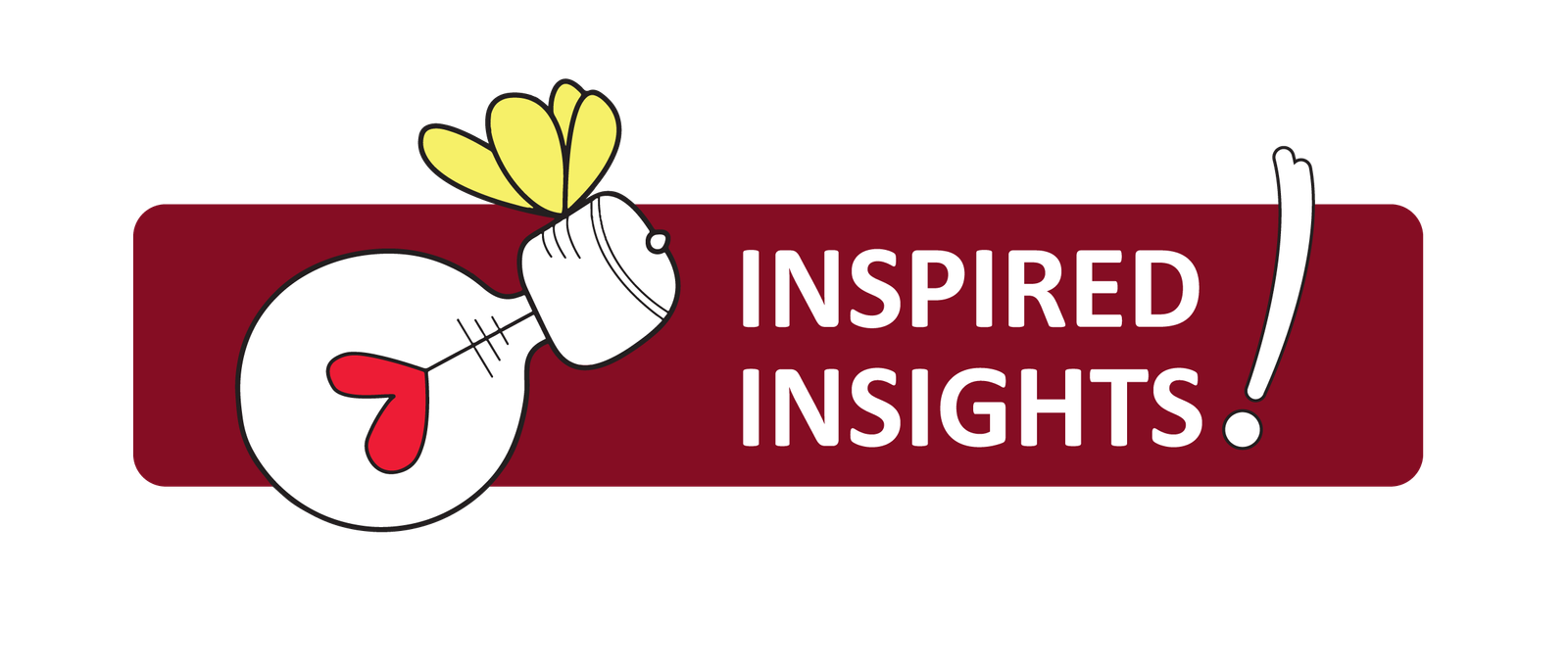
All Episodes
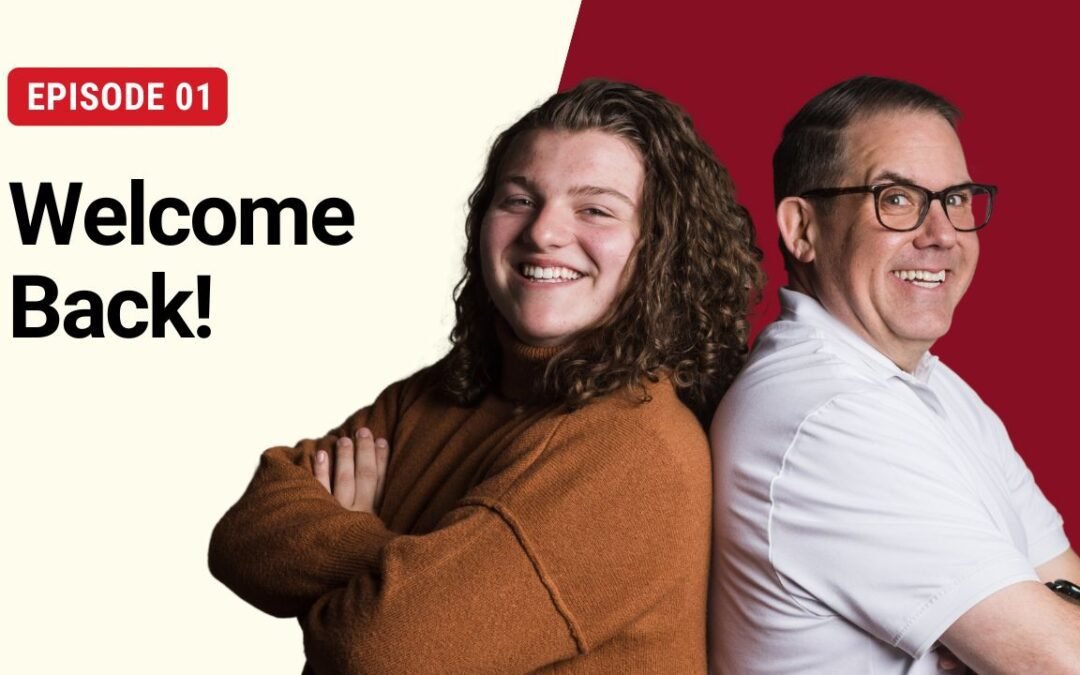
S3E1: Welcome Back
Welcome back to the Inspired Insights Podcast for the very first episode of Season Three! Join hosts Chris and Soren as they dive into a heartfelt conversation about the evolving world around us–and within us.
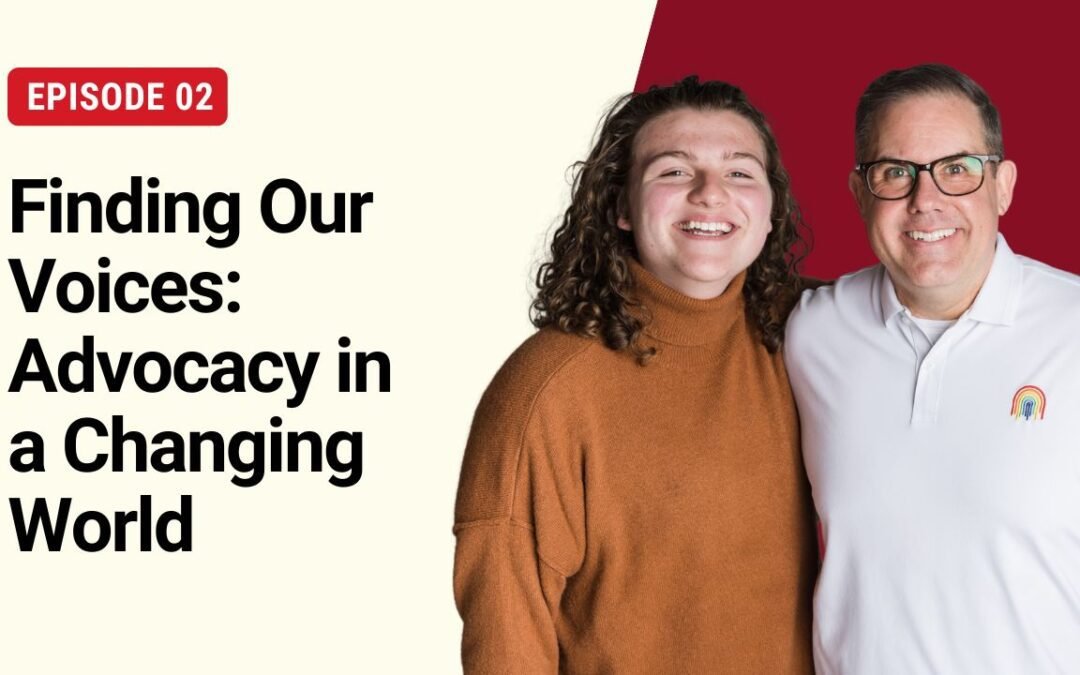
S3E2: Finding Our Voices: Advocacy in a Changing World
Chris and Soren sit down with seasoned lobbyist and tireless human rights advocate, Charlotte Warren, to explore the power—and the personal cost—of advocacy in today’s shifting political landscape.
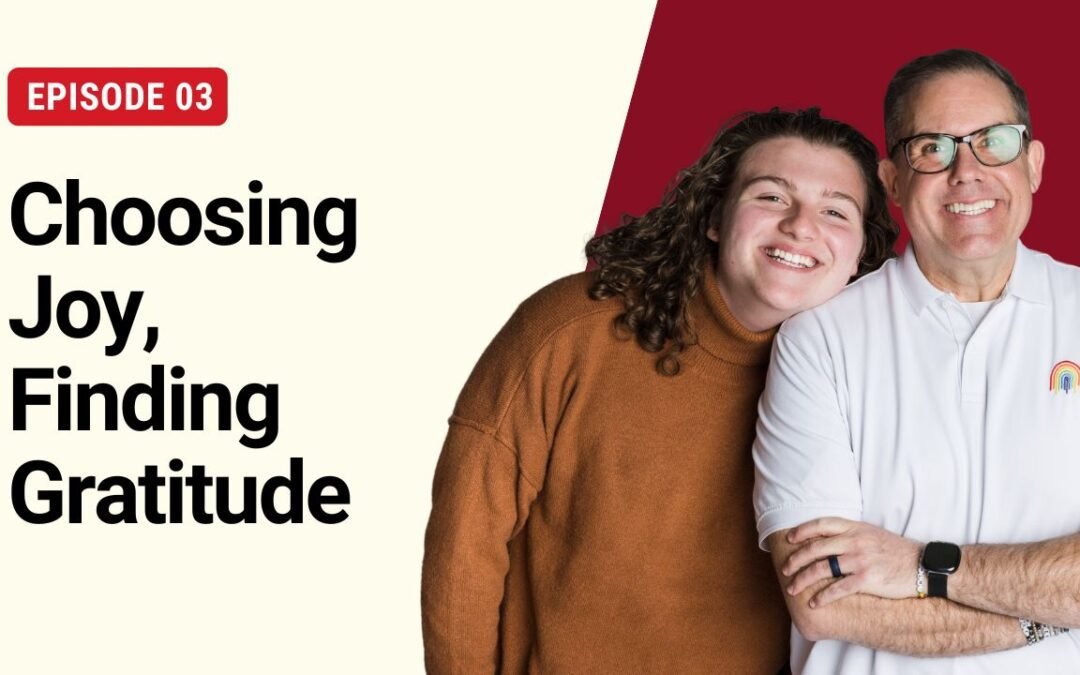
S3E3: Choosing Joy, Finding Gratitude
Chris and Soren unpack how reframing our thoughts can change the way we experience the world—from the inside out.

S3E4: The Power of Storytelling
Chris and Soren sit down with Authenticity Coach and Author Suzanne Carver to explore how sharing your story—and embracing who you truly are—can open doors to healing and transformation.
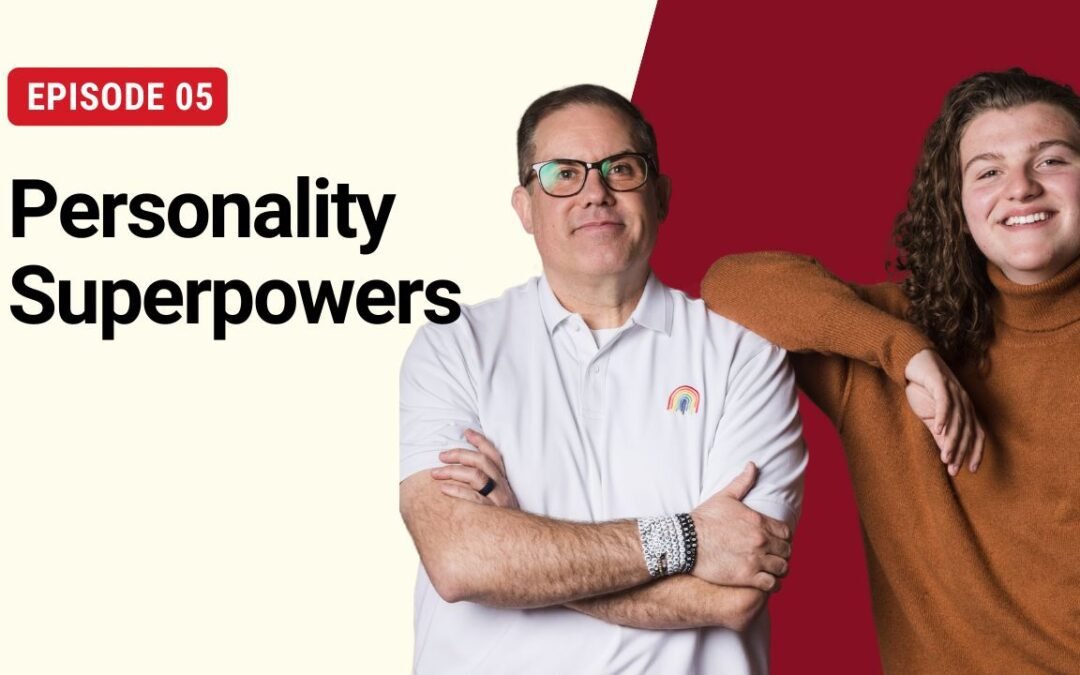
S3E5: Personality Superpowers
In this episode, Soren and Chris explore their Myers-Briggs personality types and how trauma and lived experience have influenced how they show up in the world.

S3E6: The Power of Pride
Together, they explore the deeper meaning behind Pride celebrations—why they matter, how they foster connection and visibility, and what it really takes to bring a community-wide event like this to life.
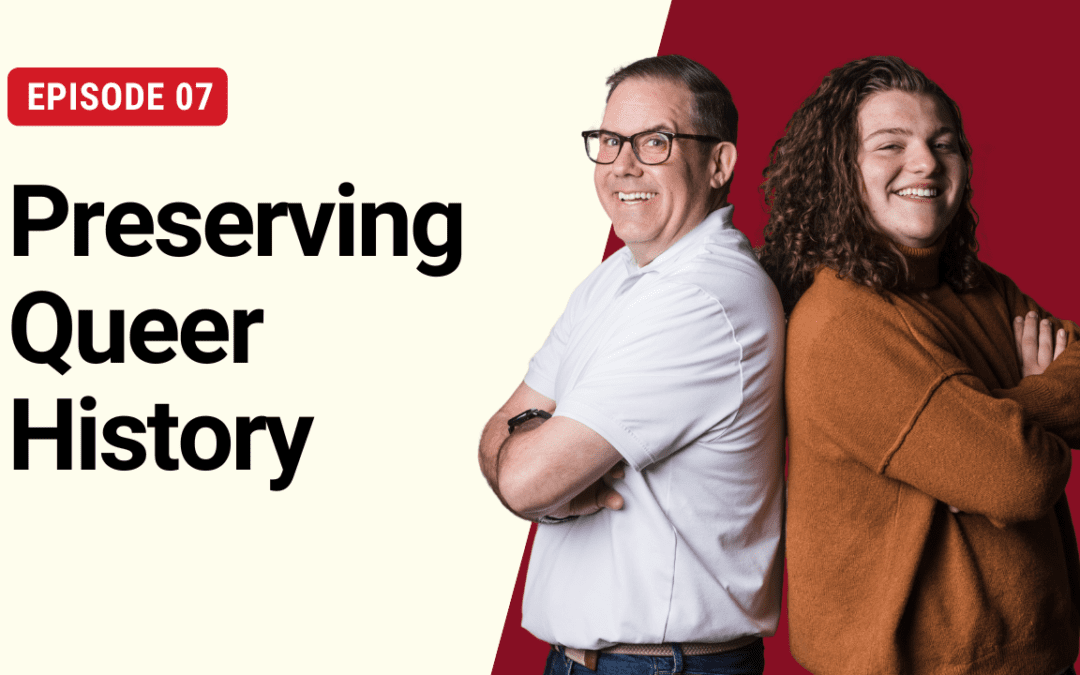
S3E7: Preserving Queer History
Soren and Chris sit down with special guests Sam and Emma to explore the vital importance of preserving queer history through storytelling and community memory.

S3E8: Under Pressure
What happens when we let teens speak for themselves? In this candid and eye-opening episode, Soren and Chris hand the mic to two remarkable young adults—Sophie and Bennet
